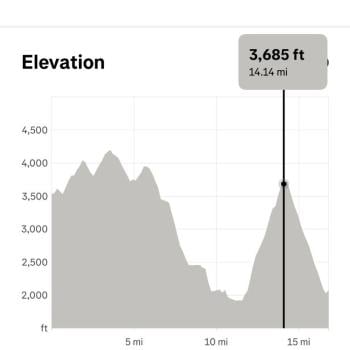The Meme that Started the Conversation
A friend recently shared this meme, and it has had me thinking all week:
We diagnose depression because it’s easier than admitting we’ve built a world that’s poison to the human spirit.
Easier to medicate the masses than face our collective soul wound.
From this, I offered that one of the many problems I see as a clinician who deals with spiritual wounding is that our religious systems and ideologies are ego driven. When we adhere to ego driven systems and ideologies, we create systems to maintain this ego adherence. In the bible, as early as the beginning, you see the beginnings of this as brother pits against brother, one of the many genres we studied in preacher school was the trickster tale.
In a spiritually mature faith orientation can help one transcend ego. When one practices this path, they begin to learn and then adopt the idea that there is no true “I”, there is only just us. We are all spiritual beings having a human experience. This human experience is then sorted through by systems created in part by ego.
One of the byproducts of letting our ego get the better of us is that it can cause alienation. Throughout the Old Testament, there are often regional squabbles, up to whole kingdoms falling apart because of an us versus them mentality. When we alienate people from systems of belonging, a byproduct can be depression.
In another response to this post, I offered that “depression has been for the last 100 or so years as much as a social construct as much as it has been a diagnostic concern. When we had systems that cared for the people, there was to some degree of equilibrium within each system. This then would modulate the severity of depression, or even anxiety one would experience.
Depression as a Clinical Pathology
I have been studying and working with depression my entire career, going on 27 years. I have found depression to be a very complex and multifaceted diagnosis with many factors leading to its development.
In Psychology, we use what is called the Diagnostic Statistical Manual of Mental Disorders to classify mental and behavioral health concerns. To assist us, we may use what is known as Patient Health Questionnaire to triage the presence of Depression. We then may use something called a Beck Depression Inventory in identifying depression in a client.
Depression as it currently stands consists of these clinically significant criteria:
The individual must be experiencing five or more symptoms during the same 2-week period and at least one of the symptoms should be either (1) depressed mood or (2) loss of interest or pleasure.
Depressed mood most of the day, nearly every day.
Markedly diminished interest or pleasure in all, or almost all, activities most of the day, nearly every day.
Significant weight loss when not dieting or weight gain, or decrease or increase in appetite nearly every day.
A slowing down of thought and a reduction of physical movement (observable by others, not merely subjective feelings of restlessness or being slowed down).
Fatigue or loss of energy nearly every day.
Feelings of worthlessness or excessive or inappropriate guilt nearly every day.
Diminished ability to think or concentrate, or indecisiveness, nearly every day.
Recurrent thoughts of death, recurrent suicidal ideation without a specific plan, or a suicide attempt or a specific plan for committing suicide.
To receive a diagnosis of depression, these symptoms must cause the individual clinically significant distress or impairment in social, occupational, or other important areas of functioning. The symptoms must also not be a result of substance abuse or another medical condition.
As a note of caution, this list is for educational purposes only and not meant as a diagnosis. If you are experiencing any of these symptoms or are feeling thoughts of harm or suicidality, it is best to talk to a medical professional immediately or find yourself to your nearest emergency room.
Depression as a Social Construct
Depression has another side of it that is not clinical. There is a social construct side of depression. As we have moved away from tribal, family and community-based ways of living, we have become more isolated and alone. The human animal is a social creature and needs other humans to create meaning and purpose with. The World Health Organization now lists loneliness as a health epidemic. On a smaller or micro scale, I would say 100% of my clients in some way or another can list loneliness or lack of meaning from specific systems as the sole cause or at least a major contributing factor to their depressive symptoms.
Depression is now a commonplace word and experience. To be depressed is a more pronounced normative experience of the human condition rather than some experience that we all have as we come up. This is compounded by the 24-hour media cycle and feeds tailored to our viewership based on algorithm. Whole characters of book, tv and film are crafted around their experience with depression.
In an article from St. Olaf College, I found this thought:
Social constructionism is a sociological theory that considers how “people’s experiences of self are understood as being formed in the course of their interactions with the world around them” (Stoppard 2000:69). Rather than being fully determined and unalterable, meanings are made, and made up, within a social process and/or action. Intimately connected with social constructionism, Michel Foucault’s theory of discourse states that “the individual still acts and interacts, but the choices are circumscribed in advance to serve and reinforce the structures that define the everyday” (Ritzer 2004: 724). This institutionalized manner of thinking denotes a social boundary defining what can be said about a specific topic. This limit of acceptable speech shapes how depression is or isn’t talked about in American society.
Research on depression suggests a connection between social contexts and depressive symptoms: “In social explanations for depression, attention is directed to the circumstances of people’s lives and the nature of events which happen to them as important sources of risk factors for depression” (Stoppard 2000:83).
Depression is a Collective Soul Wound
I think the problem with depression is much deeper. Communities of Christian faith and spirituality have increasingly become ego driven and no longer represent the message of community and love that the historical Jesus and his sect of Jewish followers espoused in the first through fourth centuries after his death.
As a Christian Church, we have created a collective soul wound for all the people we have “othered” in our imperial march to maintain the kingdom of God.
“A soul wound is a profound emotional or spiritual injury, often tied to past trauma, unresolved grief, or deep-seated pain that affects an individual’s core being. Unlike physical wounds, these injuries affect one’s spirit, identity, and sense of self-worth. They can stem from various experiences”, such as:
Childhood trauma: Abuse, neglect, or a lack of love and support.
Betrayal or heartbreak: Emotional pain from broken relationships or trust.
Loss or grief: Deep sorrow due to death, abandonment, or significant loss.
Generational or ancestral trauma: Pain passed down through family lines, rooted in unresolved trauma from ancestors.
The message of Christ is hope, peace and love. Jesus was inclusive in a time that had clear lines between Jew and Gentile, slave and free, male and female. This would later be pointed out in Galatians.
When we exist as a church only to save our church, maintain our aging populations that will be gone in a few short years, we miss the opportunity to do the real healing work of creating community, making meaning and ending loneliness.
When we exist as a church to better our communities for the sake of bettering our communities (do ministry with not for), when we create community place holders of hope and sanctuary, when we exist to bring voices for the voiceless with no intention for heavenly reward, then we begin to exist as a church of love and compassion.













